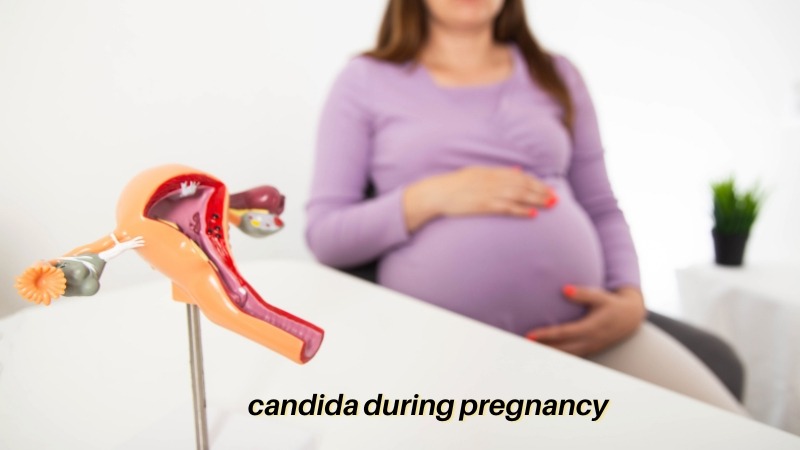 The body undergoes so many changes during pregnancy, which unfortunately creates an environment conducive for yeast infections. Pregnancy is characterized by changes in hormonal levels which increase susceptibility to yeast infections hence they are very common. To manage the symptoms better and to keep yourself healthy during this period, you must understand how yeast infection and Candida work during this period.
The body undergoes so many changes during pregnancy, which unfortunately creates an environment conducive for yeast infections. Pregnancy is characterized by changes in hormonal levels which increase susceptibility to yeast infections hence they are very common. To manage the symptoms better and to keep yourself healthy during this period, you must understand how yeast infection and Candida work during this period.
Yeast infections often go unnoticed but in some cases they can be quite uncomfortable. If left untreated, minor signs such as itching or irritation may develop into something worse. Therefore recognizing early signals of yeast infections and Candida during pregnancy is important to ensure that you remain comfortable and have peace of mind throughout this time. This guide expounds on the cause, symptoms and safe ways of treating this prevalent complication in pregnant women.
What Is Yeast Infection?
Yeast infections, commonly known as Candidiasis, are prevalent and most women experience them at one time or another, particularly in the course of pregnancy because of hormonal changes. A yeast infection occurs when there is a disturbance in the natural balance of acids and yeast in the vagina causing excessive growth of yeast. Although the symptoms may be uncomfortable such as itching and irritation they pose no life threatening illnesses and can be treated easily using safe medicines.(1).
Causes Of Yeast Infection During Pregnancy
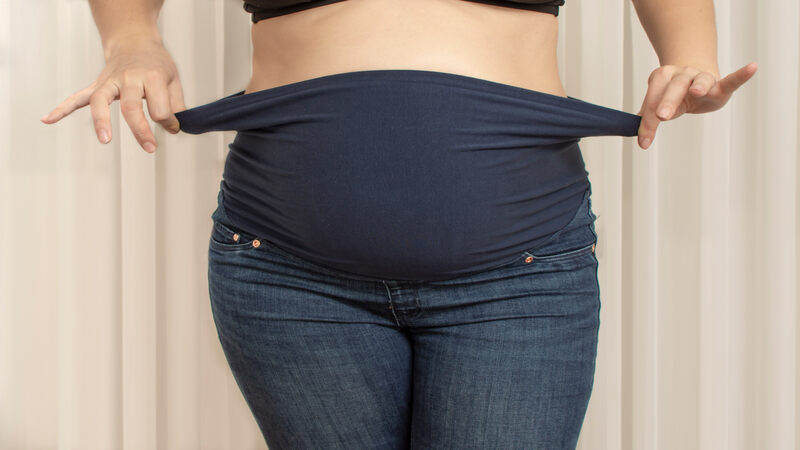
Yeast infections usually result from the imbalance in the regular yeast that resides in different areas of the body. There are several factors that can lead to this imbalance:
- Hormonal Changes: Your body generates more hormones, thus making it easier for yeast to grow.
- Increased Vaginal Discharge: Yeast does well in such circumstances.
- Weakened Immune System: You are not b enough which makes you vulnerable.
- High Blood Sugar: If you have high blood sugar, yeast infections are more likely.
- Use of Antibiotics: The natural balance may be disrupted by antibiotics resulting into overgrowing of yeast (2).
- Tight Clothing: This includes wearing tight clothes that do not allow air to circulate giving rise to moist atmosphere for fungi development.
These infections are just common and they can be treated so there’s no need to worry about them.
Symptoms Of Yeast Infection During Pregnancy
Pregnant women frequently experience yeast infections as a result of hormonal fluctuations that may alter the equilibrium of microorganisms in the vagina. Symptoms of a yeast infection during pregnancy include:
- Itching: Continuous itching or discomfort in the vaginal area.
- Discharge: Thick, white, and odorless discharge similar to cottage cheese.
- Redness and Swelling: Red patches near the vulva.
- Pain: Discomfort or pain during urination or intercourse (3).
Diagnosis Of yeast Infection During Pregnancy
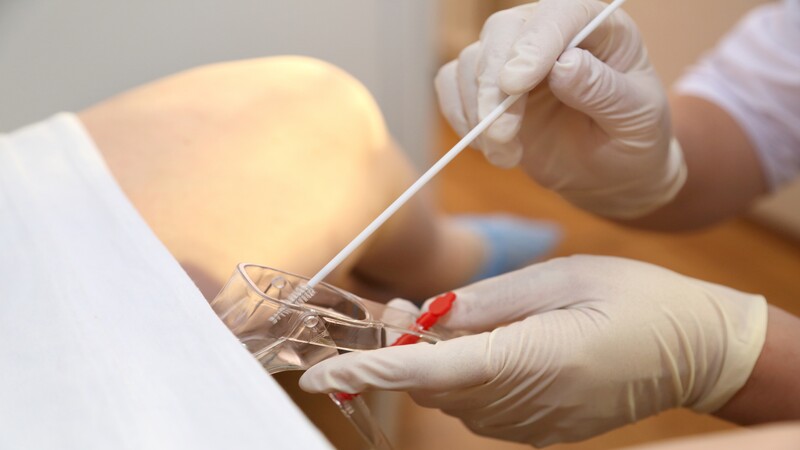
Prenatal yeast infections are prevalent and easily diagnosed by a health professional. In simple terms, this is how it is done:
- Review of Medical History and Symptoms: The doctor will inquire about the symptoms and any pertinent medical history.
- Physical Examination: A pelvic exam may be performed to check for signs of infection.
- Vaginal Swab Test: A sample of vaginal discharge is taken and examined under a microscope or cultured to identify the presence of yeast (4) (5) .
- pH Test: A test to measure the vaginal pH level, which can help differentiate yeast infections from bacterial vaginosis.
It’s important to consult a healthcare provider for an accurate diagnosis and appropriate treatment.
Treatment Options For Yeast Infection During Pregnancy
Pregnancy makes yeast infections quite common, but it is vital to treat them safely. These are some of the suggested medical options available:
- Topical Antifungal Creams or Suppositories: Over-the-counter antifungal ointments or suppositories such as clotrimazole or miconazole are frequently recommended. They are usually safe to use during pregnancy and are applied directly onto the affected areas (6).
- Oral Medications: Oral antifungal medications are usually avoided during pregnancy because of possible dangers. Nevertheless, in acute situations, a doctor may prescribe them.
- Hygiene and Clothing: Keeping the vagina area clean and dry can help prevent and manage yeast infections. The use of loose cotton underpants and avoiding scented hygiene products is what is urged.
- Dietary Considerations: Eating yogurt with live cultures or probiotic supplements may help in preserving healthy levels of bacteria and yeast within the body.
- Consult Your Healthcare Provider: Always be sure to consult your healthcare provider before starting any treatment for both you and your baby’s safety.
You must treat yeast infections since they cause discomfort and may result in complications if not treated promptly.
Preventive Measures To Avoid Getting Yeast Infection During Pregnancy
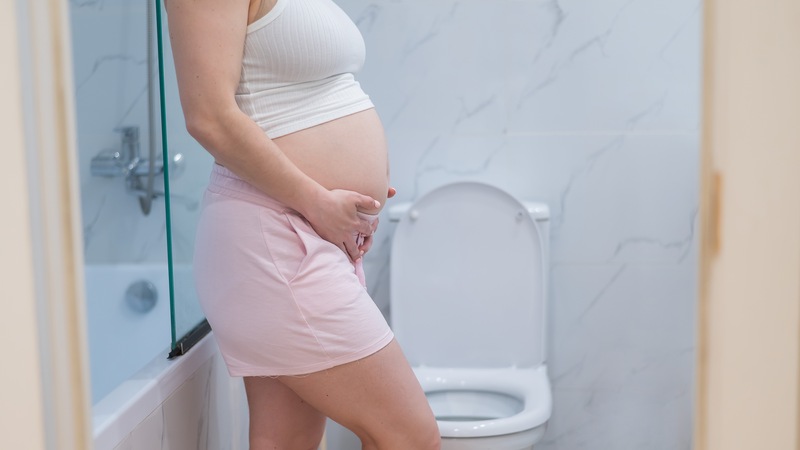
Preventative measures must be undertaken in order to keep a healthy and cozy pregnancy. Following gentle hygienic and mindful choices can significantly minimize the chances of developing an infection.
- Wear breathable fabrics: Go for loose-fitting underwear made with cotton and refrain from wearing tight-fitting clothing that can harbor moisture thus creating a favorable medium for yeast growth (7).
- Good hygiene: Wash the genital area gently using mild unscented soap and water, while avoiding douching which is able to disrupt the normal bacteria balance.
- Avoid scented products: Steer free from scented hygiene products such as bubble baths, sprays or pads because they irritate the vaginal region as well as interfere with its natural pH balance (8).
- Change out of wet clothes promptly: After swimming or exercising, it is advisable to take off your wet clothes quickly to avoid moisture trapping.
- Healthy Diet: You should include probiotics such as yogurt containing live cultures into your diet in order to keep right amounts of good as well as bad bacteria in the body.
- Control blood sugar levels: If you are having gestational diabetes or are susceptible to high blood sugar, maintaining your levels may help prevent candidiasis.
- Limit sugar intake: Reducing sugar from your meals may lessen chances for excess yeast development, since yeasts draw their sustenance from sugars.
When To Consult a Doctor?
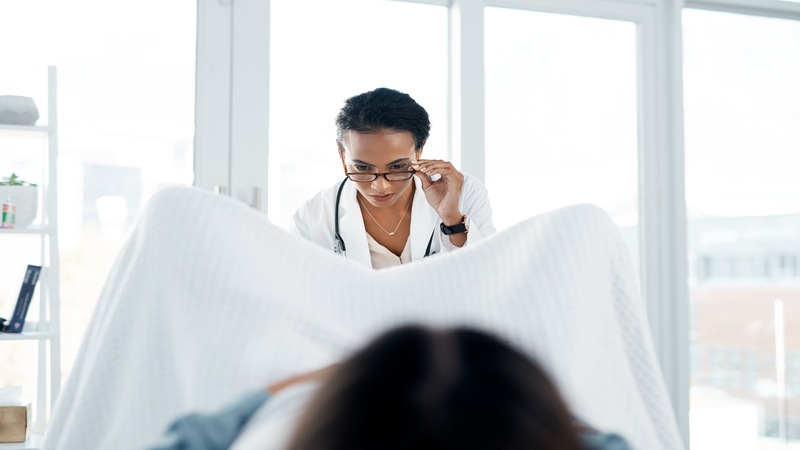
If you are suffering from a vaginal yeast infection, it would be best to consult a doctor if the symptoms don’t improve, worsen or if you are uncertain about the diagnosis. It is vital to get treatment and correct guidance:
- First-time Symptoms: This applies when you just noticed symptoms of vaginal yeast infection for the first time and cannot tell what it is.
- Uncertainty About Diagnosis: This applies when one is not sure whether the symptoms they have are caused by a yeast infection or some other thing.
- Ineffective Over-the-Counter Treatment: This applies when symptoms persist despite using over-the-counter antifungal medications.
- Worsening Symptoms: This applies when your symptoms seem to be getting worse instead of better.
- Additional Symptoms: This applies when you have additional symptoms such as fever or abdomen pain that can mean something serious.
- Possible STI Exposure: If you think you might have come into contact with sexually transmitted infections (STIs) that may present similar signs.
FAQ’s
1. How Can a Pregnant Woman Treat Yeast Infection?
Pregnant women can use topical treatments for yeast infections like clotrimazole or miconazole that are safe if taken orally. However, before starting any treatment consult your doctor.
2. Can Candida Harm The Baby During Pregnancy?
If treated correctly candida infections will not harm the baby. However, when you fail to treat them, complications arise like premature labor. It is important to manage the infection to avoid potential hazards.
3. Should I go to a Doctor For Yeast Infection While Pregnant?
Yes, it is wise to visit a physician in case of yeast infection in pregnancy to get an assurance that both yourself and your unborn child will be treated safely and effectively. Otherwise it can be very dangerous for you to self-diagnose and treat yourself.
4. What is the Fastest Way to Get Rid of a Yeast Infection?
The quickest way to cure a yeast infection is through using topical antifungal medications such as creams or suppositories. Go see your doctor so that he/she recommends what would be the most appropriate treatment during pregnancy and safety as well.
References
- Soong D, Einarson A. Vaginal yeast infections during pregnancy. Can Fam Physician. 2009 Mar;55(3):255-6 –https://www.ncbi.nlm.nih.gov/pmc/articles/PMC2654841/#
- American Pregnancy Association , Yeast Infection During Pregnancy – https://americanpregnancy.org/healthy-pregnancy/pregnancy-complications/yeast-infections-during-pregnancy/#
- Robyn Horsager-Boehrer, M.D. Obstetrics and Gynecology – https://utswmed.org/medblog/yeast-infection-pregnant/#
- Madison Women’s Health, Understanding and Overcoming Yeast Infections During Pregnancy – https://madisonwomenshealth.com/blog/yeast-infections-during-pregnancy/#
- Infections in Pregnancy: Yeast Infection, Medically reviewed by Karen Gill, M.D – https://www.healthline.com/health/pregnancy/candidias-yeast-infection#
- National Center for Emerging and Zoonotic Infectious Diseases (NCEZID) – https://www.cdc.gov/candidiasis/prevention/index.html#
- American College of Obstetricians and Gynecologists , Vaginitis – https://www.acog.org/womens-health/faqs/vaginitis#
- Mayo Clinic, – Yeast infection (vaginal) – https://www.mayoclinic.org/diseases-conditions/yeast-infection/symptoms-causes/syc-20378999?p=1#
